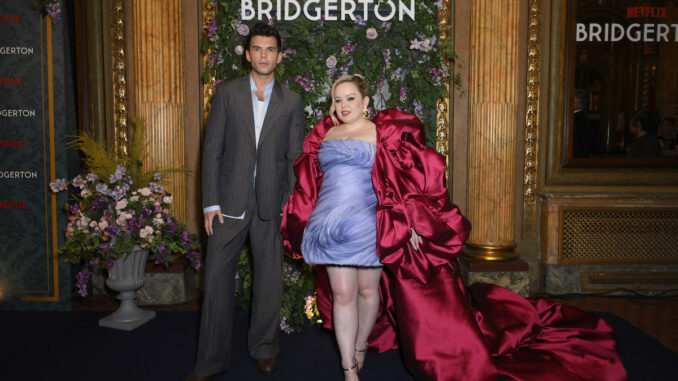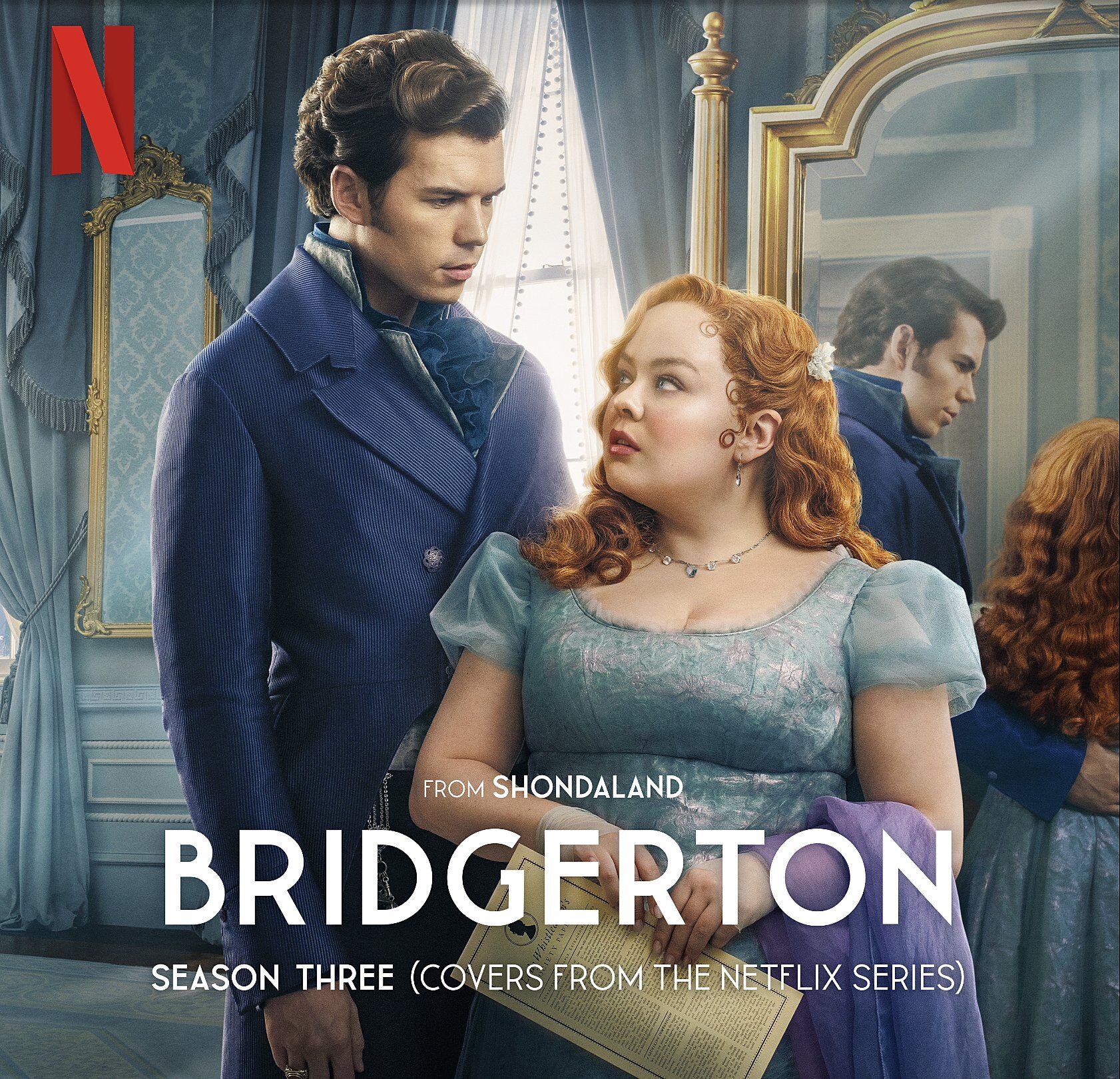
Luke Newton and Nicola Coughlan are pictured in a poster for the Netflix TV series “Bridgerton,” Season 3. (OSV News illustration Netflix)
By Meghan Schultz
No one presses play on Netflix’s newest season of Bridgerton expecting a theologically sound lesson in the nature of the human heart. But when a television show claiming to be about love captures as many eyes as this one has — with 68.7 million views since its full debut on June 13 — it reveals a truth about how people are spending their time, which in turn exposes a truth about what they are worshipping.
In addition to the clearly objectionable pornographic elements in “Bridgerton,” there are also revealing flaws in the series’ storytelling and confused messages about female empowerment.
This season tells the love story of Penelope Featherington (Nicola Coughlan), a wallflower who discovered her independence by writing an anonymous gossip column. Her writing, described as her “life’s work,” is her great, brave undertaking as a woman with precious few ways to make her place in society. For all her writing talent, the most this feminist heroine can show for herself is pages picking apart people’s lives and berating them for their worst moments. This newest season concludes with Penelope finally signing her name to the column, after years of using it for her own personal advantage. This act proudly declares ownership of something that is, in the end, as ordinarily petty as speaking poorly about someone to a crowd of eager listeners.
Far from a heroic lead himself, love interest Colin Bridgerton (Luke Newton) comes into his own as a man by frolicking across foreign countries having casual sex with strangers. After failed attempts to stifle romantic feelings for Penelope by having more casual sex (this time with paid prostitutes), he begins their courtship by admitting his affection and initiating — can you guess? — a casual sexual encounter with her. An abrupt marriage proposal follows: the epic romantic conclusion to the first half of the show.

Colin’s promiscuity needs no modern equivalent, but if the geographic expanse of his behavior feels unrealistic, the scale of modern pornography addiction provides its own tragic example. In hyper-unrealistic, oversaturated television fashion, he remains entirely unaffected by the emotional or spiritual toll of his choices until his feelings for Penelope begin to develop. Even still, he continues on as he has been. The only notable difference is in his newly tortured expression, letting the viewer know they should begin to garner sympathy, rather than distaste, for his behavior.
Leading lady Penelope has been in love with her old friend Colin for as long as she can remember. Little has changed for her since the days of season one, when she accepted the suggestion that babies come from eating cake as a reasonable possibility. She hears about Colin’s escapades during his travels, but her only reaction comes once they are married, when she flirtatiously inquires about how she compares. Despite consistent, highly emotional reactions to his words toward her, Penelope apparently feels nothing but breezy about how her new fiance spent the last year.
In “Bridgerton,” self-destructive patterns of behavior magically disappear once the right partner enters the picture, all without affecting either in the slightest. Despite the show’s attempts to paint Penelope as an image of postmodern feminist independence, it’s content to let Colin take on one maladjusted stereotype and leave Penelope to forget her dignity by descending into another.
It would be far from a flaw to create characters who can contradict themselves as they change and grow. But even that development demands a certain consistency from the writers telling it. Bridgerton, in its fantastical escapism, cannot decide if its female lead will form her identity by demanding a greater standard from society or endearing herself to the worst parts of it. Even the most absurdist tales still have to ring true at heart. If to love is to will the good of the other, Netflix showrunners don’t seem to care for their creations much at all.
Meghan Schultz works as a creative director in Catholic ministry. She graduated from Hillsdale College with a degree in English and journalism.
